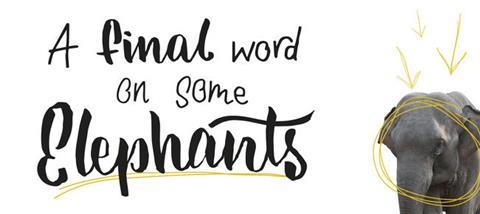
What a glorious problem to have. And look, obviously this wasn’t what we wanted to do. We didn’t set out to lose subscribers, but we were also really aware that the moment you talk about abortion, hell and masturbation, you’re going to upset… well, everybody, probably. So we were treading fairly carefully...
Around the time we were working on this issue of the magazine, British politics, and the country as a whole stopped to remember the late Jo Cox MP, who was tragically murdered one year earlier. In her most famous parliamentary contribution she reminded those in the House of Commons that they had: “More in common.”
Sometimes, especially in regard to these elephants, we need to remember that across the Church, there is infinitely more that unites us than that which divides us. That while the elephants always seem massive, our God is bigger.
And even within these disagreements, there’s common ground, and that lies in the way we approach these elephants. As many people throughout these conversations said, our job isn’t to tell our children and young people what to think, but to give them the tools to think and explore these areas well, to walk with them on their journey and introduce them to Jesus, who can hold these tensions and call them to holiness in far more loving and compassionate ways than we are able to.
We understand that there’s this temptation to tame elephants, to package them neatly into ways we understand and that fit within our man-made narratives. But perhaps the secret isn’t to tame them, but to introduce our children and young people to them, and give the next generation the skills and wisdom to sit alongside these beasts with the humility that is so often lacking from these conversations, but that we’ve seen in abundance here.
Perhaps then the real elephant isn’t the Old Testament, corporal punishment or transgenderism but the Church’s profound inability to wrestle yet still live with disagreement. Let’s model a better way.




























